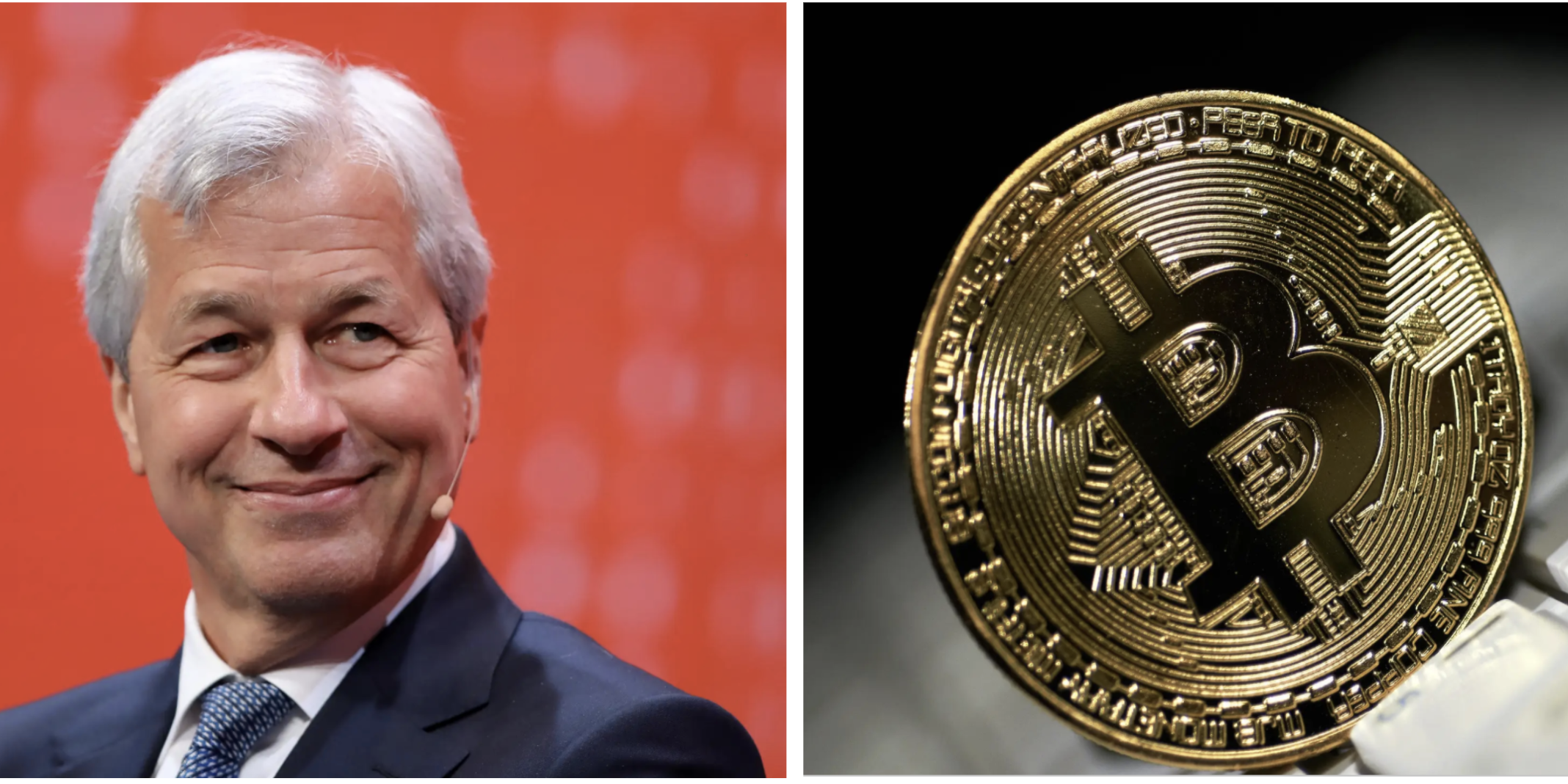
Mike Blake/Reuters/Alain Pitton/NurPhoto via Getty Images
- Jamie Dimon says he "doesn't support bitcoin" and "has no interest in it."
- The CEO sat down with The Wall Street Journal CEO Council on Tuesday and discussed everything from the US economy to work-at-home policies.
- Dimon said the US economy could be in the "Goldilocks" zone for growth and is set to boom.
- Sign up here for our daily newsletter, 10 Things Before the Opening Bell.
JPMorgan CEO Jamie Dimon sat down with The Wall Street Journal's editor-in-chief Matt Murray at the CEO Council Summit on Tuesday.
The CEO said he expects the US economy to boom, but warned inefficient government spending could bring the party to halt.
Dimon added that he believes the economy could find the perfect "Goldilocks" zone of strong growth coupled with mild inflation if all goes well.
He went on to say that while equity valuations across markets are high, he expects this is due to a pricing in effect of upcoming economic growth post-pandemic.
Dimon also criticized bitcoin and work-from-home policies in the half-hour interview. Here are the 8 best quotes from the head of the largest bank in the US.
- "So I am not a Bitcoin supporter. I don't really care about Bitcoin. I know I'm going to get tons of emails after this. I have no interest in it. On the other hand, clients are interested and I don't tell clients what to do…they want to be able to put it on statements, they want to be able to buy and sell it. If we can help them do those things very, very safely with all the proper disclosures then, you know, that's their job, it's no my job to decide what they're going to do with their money."
- "You are going to have a boom. And my reference to Goldilocks is more about that. If we're lucky, it'll be a boom and inflation will go up not too much and rates go up not too much and everything would be fine."
- "I think they're (millennials) doing fine. I know people raise that issue, but I also tell this generation that they're going to inherit the most prosperous nation that the world's ever seen, because we're not all going to be here one day. They'll do fine, maybe they were set back a little by 08' or something like that, but I think they'll do fine."
- "It [work-from-home] doesn't work really well. So my view is there will be more hybrid work…it's not going to change everything so dramatically. It accelerated a trend, but it does not work for younger people, it doesn't work for those who want to hustle, it doesn't work in terms of spontaneous idea generation…it doesn't work for culture."
- "I do not believe we are going to solve society's problems with government alone. I don't think government can keep up. I'm not insulting them, the world is so fast, so complex…I think the government, business, schools, unions working together can solve some of our biggest problems. We kind of did that in WWII, you had a bunch of that during the new deal. I'm hoping that's the outcome of some of these things today. I don't know if that's going to be true and if not we're going to have a huge problem."
- "I'm not critical of government per se. I'm critical of our failures as a society…we don't do infrastructure well, immigration well, regulation well… I'm not talking about big banks, red tape, and bureaucracy…go out and sit down with a small business, ask them what it's like to deal with OSHA workers' comp, local regulations, federal regulations, state regulations, licensing regulations, tax regulations. It's crippling. The can-do nation, became the nation of red tape."
- "We're going to have a hugely strong economy and it's probably going to go well into 2022 and maybe 2023 because of $7 trillion of spending…you also have to look at the consumers in great shape or the consumers going back to work the boundaries in great shape, own prices, their debt levels are low, completely different than the great recession where there's hugely leveraged by the consumer and by wall street and finance institutions."
- "I think the market is already pricing in what I just said about a very strong economy and you see that in earnings and therefore the results of the economy could justify the high prices, but they are very high by almost any historical measure. And we look at tons of them, you know, uh, market capita GDP, PE ratios by almost any measure they're very high, but that doesn't mean every stock is high."
